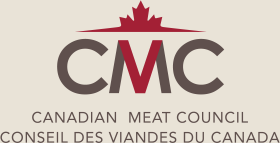AGRI-FOOD INDUSTRY GETS IMMIGRATION PILOT
Long-Awaited Labour Pilot Will Address Huge Employment Shortage in Meat Processing
Ottawa (ON) July 12, 2019 – Butchers are essential to our food supply and yet, often overlooked. Today, the federal government recognized our butchers and the huge labour shortage in meat processing by officially announcing an Agri-Food Immigration Pilot, that will provide our industry with 2,750 spots for Temporary Foreign Workers (TFW).
“A year ago, we met with Minister Hussen, Hajdu and MacAulay, industry members, and the union. Our labour shortage and message to help Canada’s food supply became clear to the government. Today, we are thankful for their hard work, their recognition of our labour shortage, and their appreciation for our butchers and Agri-Food sector by announcing this labour pilot” says Chris White, President of the Canadian Meat Council (CMC).
With more than 1,700 empty butcher workstations across the country among our members, this pilot will allow our members to gain access to TFW that are desperately needed to fill the labour gap and more importantly, allow them to transition to permanent resident status.
CMC has been advocating for almost a decade the need for government to create a program that would help the sector to deal with the high employment shortage and issues with the current TFW Program.
“This pilot is vital to our sector. Our members provide year-round, permanent jobs. There’s nothing temporary about our need for a workforce, and the TFW program didn’t work for our members – this pilot gives them a solution,” adds White.
Last fall, Industry Canada’s Agri-Food Economic Strategy Table reporthighlighted the need to address the immediate labour shortages facing the sector and to modernize Canada’s immigration and temporary foreign worker programs to access the global labour force across all skill levels.
“It’s important to remember that our members always hire Canadians first. Allowing entry-level butchers means creating more middle-class jobs – which is what this government is all about” added White. “For everyone one temporary foreign worker, we also create four jobs for Canadians.”
Facts:
- Over the last 14 years, meat processing wages have increased by over 50% with research showing that entry-level and experienced butcher positions having increased the most.
- Nearly 1,700 empty butcher stations at meat processing plants across Canada.
- Research findings also indicate that beef meat processing capacity in Canada is less today than it was 20 years ago, pork capacity is stagnant, and lamb is not enough to keep up with domestic demand.
- The labour shortage is having critical impacts of lost sales for meat processors of $750 million annually, plus $396 million lost sales for its value chain producers, also due to labour shortage, bringing the total economic impacts to the red meat sector to approximately $1.15 billion.
- Meat processing is Canada’s largest food and beverage manufacturing employer with 64,500 workers in rural and urban areas across Canada in 2015.
- Red meat consumption and exports supported 288,000 jobs in Canada in 2016, generating $6 billion in annual revenues.
- Over 90% of TFWs who are allowed to stay, remain working in the rural meatpacking plants.
SECTEUR AGROALIMENTAIRE RECOIT SON PROJET PILOTE D’IMMIGRATION
AGRI-FOOD INDUSTRY GETS IMMIGRATION PILOT
About Canadian Meat Council:
For nearly a century, the CMC has represented Canada’s federally registered meat packers, meat processors and equipment suppliers. CMC provides evidence-based advocacy on behalf of its members and works to secure and improve Canada’s global meat competitiveness and, promote a balanced diet, which includes high-quality and nutritious Canadian meat. The Canadian red meat industry represents over 20 Billion dollars to the Canadian economy and supports 288,000 jobs across Canada. Contributing $304 million per day to Canada’s economy ($111 billion annually) and employing approximately 2.3 million Canadians the Agri-Food sector accounts for close to 7% of Canada’s GDP.
For more information, please contact:
Marie-France MacKinnon, Vice-President, Public Affairs & Communications
Canadian Meat Council
(613) 725-5805 | [email protected]


